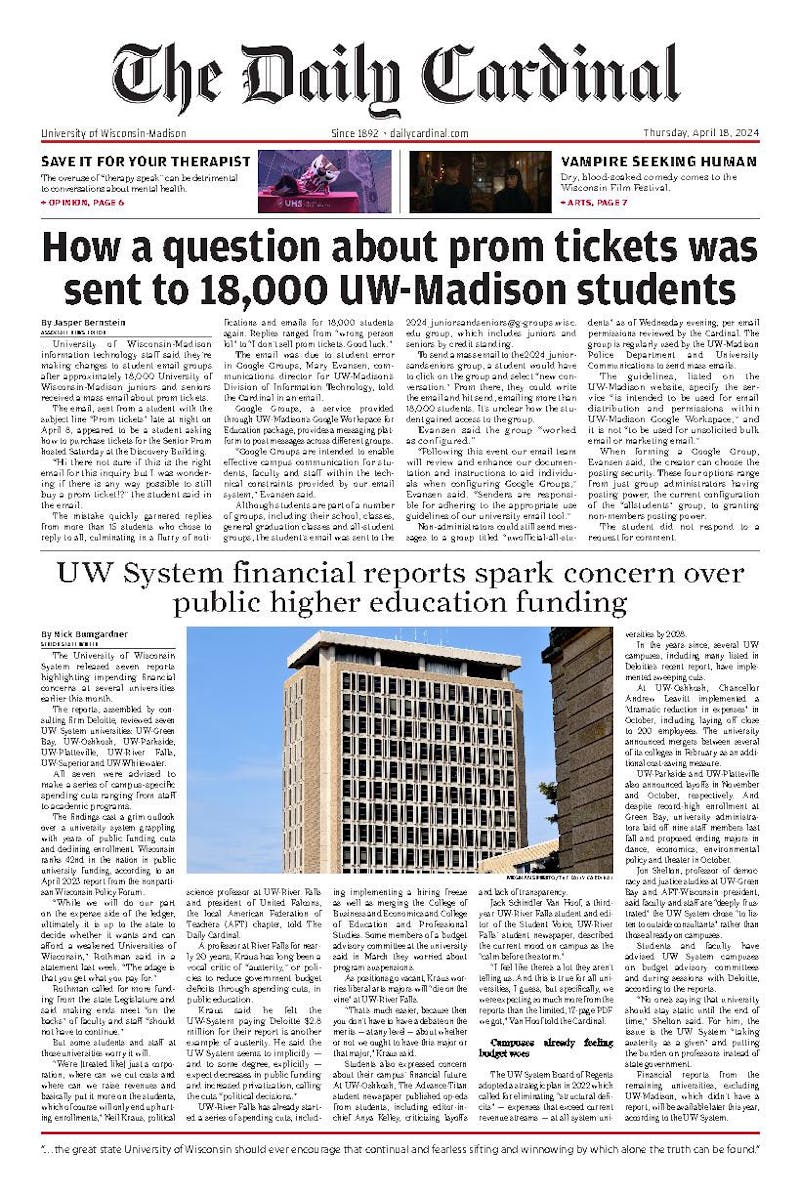Some important information was missing from a recent article on the Choices about Alcohol program.
Choices is one facet of the university’s strategy for supporting a campus environment where students can live and learn free of the negative effects of alcohol misuse, consistent with our research, teaching, and service mission. Because the actions of intoxicated students are disruptive to others in the community—e.g. noise after quiet hours in the halls, emergency personnel transporting an individual from the halls, vomit in a hallway or restroom, physical assaults—we aim to discourage all alcohol misuse that normalizes high risk drinking behaviors. Just like in the “real world,” individuals are accountable for their actions.
Choices has a broad range of content and participatory activities, allowing students to benefit from peer and facilitator interaction, increase motivation for behavior change, and develop knowledge and skills for risk reduction. And the evidence shows that it is effective.
The Office of Student Conduct and Community Standards (OSCCS) is committed to evidence-based programs to foster student learning. We evaluate our alcohol education programs to ensure they are serving their stated aim of fostering risk reduction behaviors and attitudes among participants and the campus overall. Each participant completes a pre-assessment and post-assessment about their habits, knowledge, and attitudes related to alcohol consumption. The changes from pre-assessment to post-assessment are analyzed for statistical significance. The assessments also collect student feedback about the program itself.
More than 600 students completed the assessments in 2015-16. The annual program report is available at https://students.wisc.edu/student-conduct/nonacademic-misconduct/office-reports/.
Contrary to the article’s assertion that students are scared by Choices, the program evaluations show:
- 91% of participants describe the program as good or excellent
- 94% of participants agree that applying the information from Choices will help them reduce risk
- 74% agree they will change some aspects of their alcohol-related behaviors
Additionally, 80% of participants described the program as educational, informative, and interesting. Of course students also identified facets that they dislike about the program, which we use to improve our practices and share with the providers to improve program delivery.
The data also show that after completing Choices, participants expressed more contemplation about their drinking habits (a necessary step for later behavior change) and learned about and supported safer drinking decisions.
The evidence is clear: if students choose to approach Choices with an open mind and engage thoughtfully to evaluate their own alcohol use, they will benefit from the program. If they choose not to learn from the program, then it is not a productive use of their time or money, and carries the continued risk of negative consequences from unchanged drinking habits.
Increased use of alcohol education (Choices and BASICS) coincides with a trend in decreases in alcohol misuse in the residence halls since 2013-2014. Most recently, we saw the following in changes in fall 2016, as compared to fall 2013:
- 39% reduction in students reporting drinking primarily in a residence hall according to Alcohol Edu
- 40% reduction in alcohol-related incidents involving residence hall students
- 47% reduction in alcohol-related incidents in and around residence halls
- 20% reduction in residence hall students being transported to detox or the hospital for alcohol incapacitation
Choices about Alcohol is not a panacea for UW-Madison’s high risk drinking culture that negatively impacts our students, activities, and image. However, it is an effective tool in our multifaceted and evidence-based approach to prevent alcohol misuse, to assist student learning, and to hold students accountable for violations of community standards.
Additional questions about the program can be directed to OSCCS (www.students.wisc.edu/student-conduct/), as we support transparency about the work that we do and the impact we have on campus through the misconduct process.
Tonya Schmidt is the assistant dean and director of the Office of Student Conduct and Community Standards in the Division of Student Life, and Will Chapman is the assistant director of this office. Do you have personal experience with the Choices program? Does this letter change your opinion on the effectiveness of the program? Send comments and concerns to opinion@dailycardinal.com.





